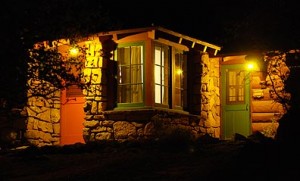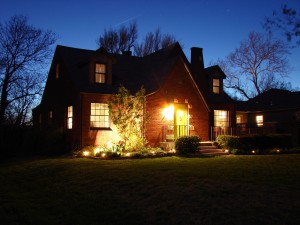There is so much confusion in our current place and time when it comes to our selves and what we consist of.
Some tell us that we are purely physical and have no need to consider any spiritual aspect.
Others tell us that the most important piece of us is the spiritual piece and we should disregard the physical altogether.
I confess that I tend to lean toward the latter. Most days I’d prefer to ignore my physical body completely and only tend to my spiritual life. There are probably many of you who lean the other way.
Both of these either/or views, however, don’t accurately depict the way God created humans.
God created man to be unique among all created beings. He created us to be the link between natural life and spiritual life, called to manifest his glory in both.
Humans are
truly created a little lower than the angels, yet truly crowned with glory and worship, because in this unperfected human nature the Absolute Life itself has deigned to dwell. ~ Evelyn Underhill
We are the only beings created to be both physical and spiritual. We stand in the gap between heaven and earth, bringing God’s kingdom rule here on earth and reflecting the praises of creation back to God.
Rulers and priests.
Physical and spiritual.
It has helped me when thinking through this idea to think of the self as a house. Many theologians over the centuries have written of the self in this way.
St. Teresa of Avila, a Christian mystic in the 16th century, wrote a book called The Interior Castle in which she describes the movement between the lower floors of the castle (the physical self) and the upper floors (the spiritual self) as prayer.
Evelyn Underhill, a theologian from the early 1900’s, wrote of the self as a home with an upstairs (again, the spiritual self) and a downstairs (the physical body).
Both floors of the home are necessary. Taking care of both is essential to being a whole person in the way God intended for us to be.
Therefore a full and wholesome spiritual life can never consist of living upstairs, and forgetting to consider the ground floor and its homely uses and needs; thus ignoring the humbling fact that those upper rooms are entirely supported by it. ~ Underhill
I feel as though those words were written directly to me.
I not only tend to forget the “humbling fact that those upper rooms are entirely supported by” the ground floor, I sin against my Creator when I disparage my physical body as unimportant or less than.
Back to the singularness of human beings, the strength of our “house” consists in that “intimate welding together of the divine and the human.” (Underhill)
That intimate welding together found its perfection in the humanity and deity of Christ.
That intimate welding together is what you and I must aim toward if we are to become like Jesus, become the kind of human we were created to be.
We were created to be a whole house, with the lower and upper floors intimately welded together for the glory of God.
Art credits: painting is by Thomas Kinkade; photo of light through trees is by Kirk Sewell








